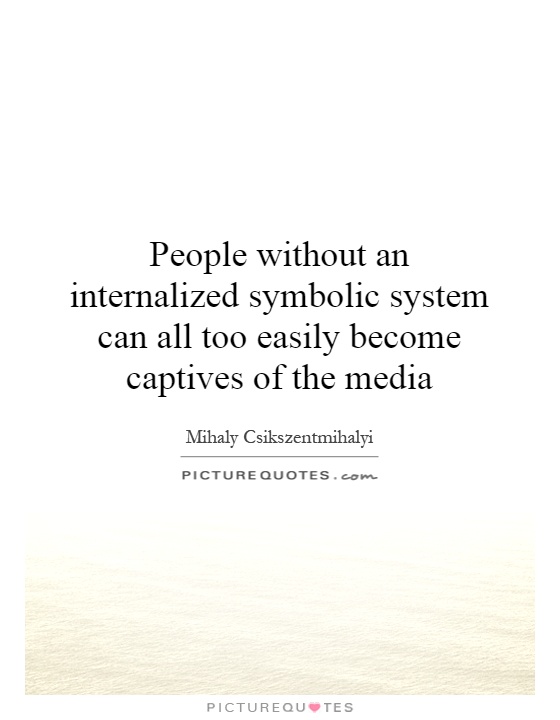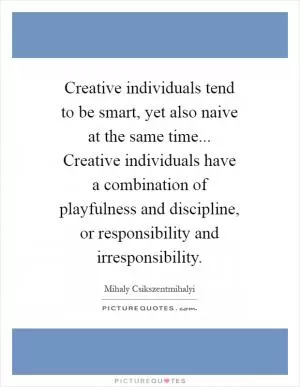People without an internalized symbolic system can all too easily become captives of the media

People without an internalized symbolic system can all too easily become captives of the media
Mihaly Csikszentmihalyi, a renowned psychologist known for his work on flow theory and positive psychology, has also explored the impact of media on individuals' mental well-being. In his research, Csikszentmihalyi has highlighted the importance of having an internalized symbolic system in order to resist the influence of media and maintain a sense of autonomy and agency.An internalized symbolic system refers to a set of beliefs, values, and meanings that individuals use to interpret and make sense of the world around them. This system acts as a filter through which individuals process information and make decisions, guiding their behavior and shaping their identity. Without a strong internalized symbolic system, individuals may be more susceptible to external influences, such as the media, which can shape their beliefs, attitudes, and behaviors.
Csikszentmihalyi argues that individuals who lack a well-developed internalized symbolic system are at risk of becoming captives of the media. In today's digital age, where information is constantly bombarding us from various sources, it is easy for individuals to passively consume media content without critically evaluating its impact on their beliefs and values. Without a strong sense of self and a clear understanding of their own values and goals, individuals may be swayed by the messages and images presented in the media, leading them to adopt attitudes and behaviors that are not in line with their true selves.
Furthermore, Csikszentmihalyi suggests that individuals who are unable to resist the influence of the media may experience a sense of alienation and disconnection from themselves and others. By allowing external forces to shape their beliefs and behaviors, individuals may lose touch with their own desires and aspirations, leading to a sense of emptiness and dissatisfaction.












 Friendship Quotes
Friendship Quotes Love Quotes
Love Quotes Life Quotes
Life Quotes Funny Quotes
Funny Quotes Motivational Quotes
Motivational Quotes Inspirational Quotes
Inspirational Quotes